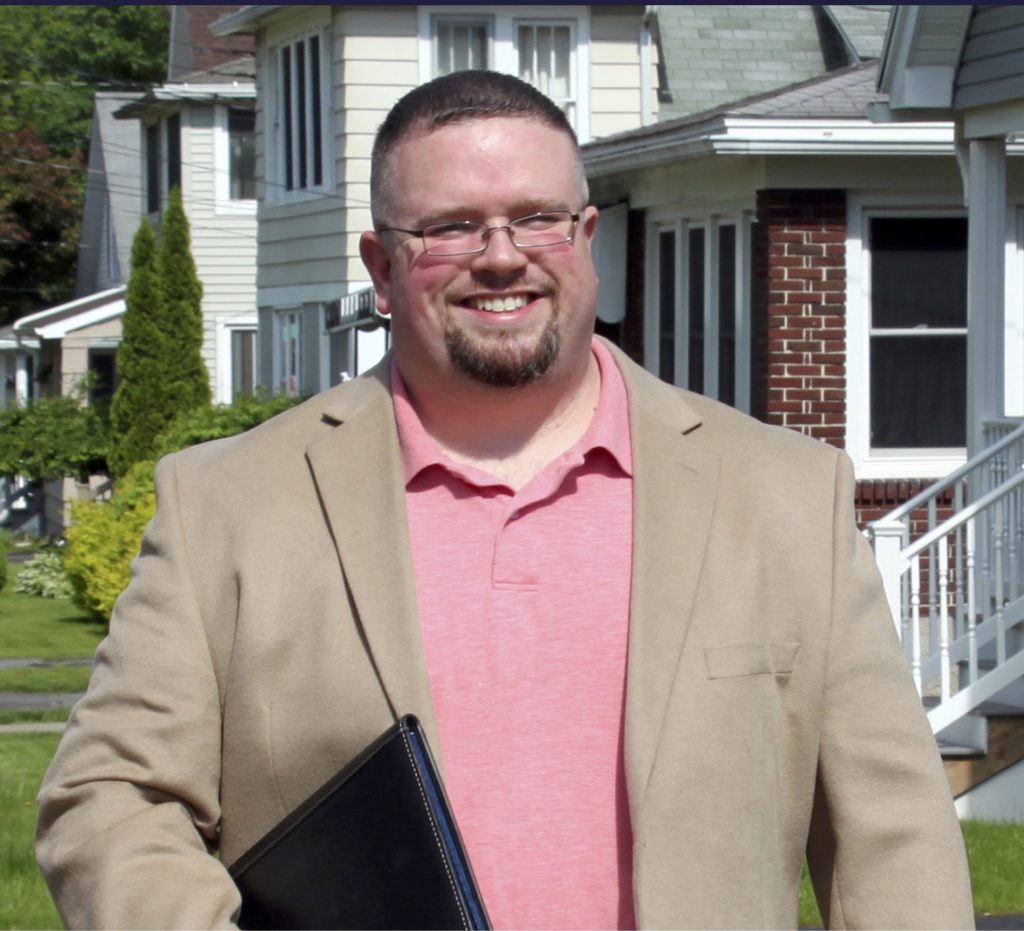
Tim Ames is the Democratic candidate for Binghamton’s 6th district seat on the Binghamton City Council. He is a Broome County native and studied business management and civil engineering at SUNY Broome.
In your opinion, what is the most pressing issue in your district and why?
“In my district, the two main issues echoed from nearly every constituent are taxes and crime. My district represents a diverse group of people. With a larger population of lower-income folks, greater ethnic diversity and a larger stock of multi-dwellings in my district, we are prone to a slightly higher amount of petty crimes. Additionally, everyone in this town complains about the taxes. Much of this is driven by potholes, and Albany, in my opinion. Updating infrastructure and getting folks to engage each other in positive interactions would do a great deal of good for my district and the city as a whole.”
How do you envision engaging with the community and addressing the concerns they may have? More specifically, what would you do to engage Binghamton University students in these community issues?
“Simply put, more interactions among all pupils, and being available to listen to what my constituents have to say. We need to foster a ‘community’ again. I would like to see more shared interactions by way of neighborhood gatherings, benefits, parties [and] cleanups. Many in this city do not keep their head up and say hello to each other. It is a simple and easy place to start. Further, without BU and its population, our city would no longer be. The ‘local’ population needs to better embrace those who live here temporarily. Townies and BU students need platforms for positive interactions. I would work toward creating and promoting this.”
Do you have any plans to address the housing blight in your district, and the city as a whole? Please explain why or why not.
“I have many ideas on this issue. I feel we need to change our approach and stop demolishing without rebuilding. One idea I have is to look into block grants and other federal funds to create a program to either renovate or rebuild these homes in an affordable manner while making available easy terms to finance the purchase of these properties. We need owners to be local to have better accountability for the properties themselves. This likely would help to attract people to live here, and also to keep properties on the tax rolls. It is vital to maintain and grow our housing stock, rather than demolish.”
If you could make changes to the building codes or code enforcement in the city, what would they be? If you would not make any changes, please explain why not.
“Building code is complex. I think on a residential level, we need to limit the amount of units in a single building. We must also account for parking needs when doing this. Further, we need to hold landlords more accountable on the condition and safety of these properties. To do this, we need stronger code enforcement. For commercial code, we need to fight for [Project Labor Agreements] to protect the tax dollars being spent. This in turn will keep the money local and employ highly trained local laborers. We have too much shoddy work done in the area, and it needs to stop.”
What changes, if any, would you make to public transportation in your district and why?
“Public transit in my district has been mostly unaffected by the reductions over the years from the county. As the county has reduced routes and times offered, the South Side remains mostly intact. It is my understanding that perhaps going back to 30-minute loops rather than hourly would help. I would be for this, if the need is greater than the cost. Due to the landscape of my district, I feel it would be a hard option to offer more routes and stops. I myself took public transit for many years in my district, and found it to suffice for my needs. I am open to suggestions on this, however.”


